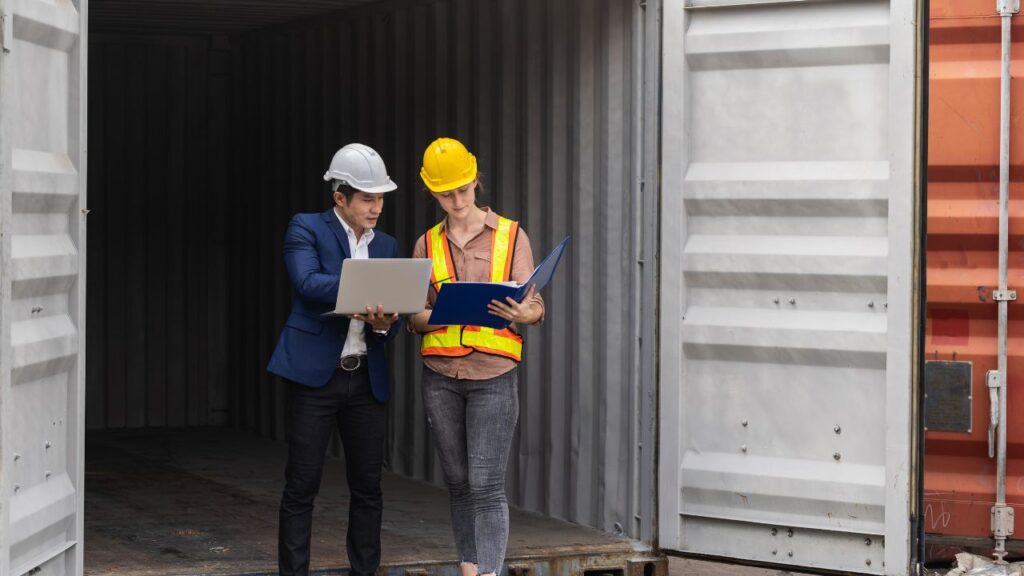International trade offers huge opportunities for Indian businesses—but only when the export process runs smoothly. One of the most critical stages in the export journey is customs clearance for exporters, where goods are verified, documented, and approved for export by government authorities.
For many businesses, this stage can become complex and time-consuming due to documentation errors, valuation disputes, or a lack of compliance with technical regulations. This is where technical certification and Chartered Engineer Services play a crucial role in ensuring smooth customs clearance for exporters.
In this article, we’ll explore how technical certification impacts customs processes, why exporters need it, and how working with certified engineers simplifies and accelerates export operations.
Understanding Customs Clearance for Exporters
Customs clearance for exporters is the official process of obtaining permission from customs authorities to export goods out of India. The process ensures that:
- Export goods comply with international trade regulations.
- Correct classification, quantity, and valuation are declared.
- Duties, taxes, and export obligations (if any) are fulfilled.
- The export is legally documented and traceable.
Customs authorities, such as the Central Board of Indirect Taxes and Customs (CBIC), verify shipping bills, invoices, packing lists, and various technical certificates before granting clearance. Without accurate documentation and compliance proofs, shipments may face inspection delays, penalties, or even rejection.
What Is a Technical Certification in Export?
A technical certification is an authorised report or document that verifies the quality, condition, value, and usability of goods meant for export. It ensures that exported goods meet both domestic export norms and import standards.
Depending on the type of product and export destination, various certifications might be required, such as:
- Chartered Engineer (CE) Certificate
- Inspection Certificates (IC)
- Pre-shipment Inspection (PSI)
- Product Conformity Certificate
- Quality or Safety Certification
Why Technical Certification Matters in Customs Clearance
Exporters often underestimate the impact of technical certification on customs clearance. But it plays multiple vital roles:
-
Accurate Valuation of Goods
For customs authorities, the declared value of exported goods must reflect their true market worth. Technical certifications by qualified engineers validate that the goods are correctly valued—preventing under- or over-invoicing issues that may delay clearance.
-
Verification of Condition and Functionality
When exporting used or refurbished goods, customs authorities require proof that the items are in good working condition. Technical certification confirms operational efficiency, ensuring customs officers trust the exporter’s declaration.
-
Compliance with Export-Import (EXIM) Policy
DGFT and CBIC require exporters to comply with India’s Foreign Trade Policy (FTP). Technical certifications ensure that exported products align with specific policy requirements, including eligibility under export promotion schemes like EPCG or Advance Authorisation.
-
Smooth Coordination with Overseas Buyers
A verified technical certificate builds trust between exporters and foreign buyers, minimising disputes about product condition, performance, or specifications after shipment.
-
Avoidance of Customs Queries or Hold-ups
Incomplete or inaccurate technical data often leads to customs queries or re-inspection. A certified technical report ensures that customs officials have all the required information upfront—reducing clearance time significantly.
Benefits of Technical Certification for Exporters
Exporters who invest in technical certification and Chartered Engineer Services enjoy several advantages:
- Faster Customs Clearance: Well-documented and certified shipments rarely face delays or re-inspections.
- Reduced Risk of Penalties: Accurate valuation and compliance reduce the chances of fines or disputes.
- Enhanced Credibility: Certified reports add professionalism and transparency, increasing buyer confidence.
- Eligibility for Export Incentives: Some DGFT schemes require verified technical certificates for benefit claims.
- Global Recognition: Certificates issued by registered Chartered Engineers are accepted internationally.
Common Situations Requiring Chartered Engineer Certification
You’ll often need Chartered Engineer Services in the following cases:
- Export of used machinery or refurbished industrial equipment.
- Export under EPCG or Advance Authorisation schemes.
- Export of repair-and-return or temporary export items.
- Export valuation disputes require technical justification.
- Exports involving capital goods or high-value plant components.
The Future of Technical Certification in Indian Exports
As India strengthens its export framework, the government is integrating digital verification systems for faster and more transparent customs processes. In the coming years, exporters will likely be able to upload technical certificates directly to the ICEGATE or DGFT portals for pre-clearance approvals.
Moreover, with the growth of sustainability and circular economy exports, the demand for certified, refurbished, and eco-compliant machinery will increase, further emphasising the role of Chartered Engineer Services in global trade compliance.
Challenges Exporters Face Without Technical Certification
Lack of proper certification can create serious hurdles in customs clearance:
- Rejection or delay of shipments for incomplete technical information.
- Incorrect duty assessment due to undervaluation or overvaluation.
- Seizure or penalty for a misdeclared condition or functionality of goods.
- Loss of credibility with both customs authorities and international buyers.
Conclusion
Technical certification is not just a compliance requirement—it’s a critical enabler of smooth customs clearance for exporters. Whether you’re exporting new machinery, used equipment, or capital goods, having a certified technical evaluation can mean the difference between fast approval and costly delays.
By leveraging Chartered Engineer Services, exporters can ensure that their shipments meet all technical, legal, and valuation requirements. This not only builds trust with customs authorities but also enhances the reputation of Indian exporters in global markets.
In today’s competitive export landscape, precision, documentation, and compliance are the cornerstones of success — and technical certification ensures all three.

